Living at the Speed of Light
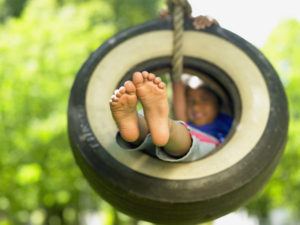 Remember when the speed of life and the speed of light were not identical?
Remember when the speed of life and the speed of light were not identical?
Remember screened-in porches meant for sitting and talking or just thinking long thoughts about life? Remember garden swings, sweet summer afternoons wandering a meadow, picking apples in the fall, a Christmas tree you’d trekked through snow to find and then helped cut down? Remember life before cell phones, iPads, computers and a wretched economy sucked us all into a machine-made world in which speed and efficiency were the only coin of the realm?
I’m rebelling on behalf of the children. The ones who will need to be computer-literate from infancy in order to compete or function. The ones who will grow un-fit because they play ball in virtual simulations, not in sunlit fields or vacant city lots.  The ones who may never know the sheer joy of helping Granny bake the bread or helping Daddy hang the storm windows or fix a broken toaster, all acts meant to keep the family safe and warm.
The ones who may never know the sheer joy of helping Granny bake the bread or helping Daddy hang the storm windows or fix a broken toaster, all acts meant to keep the family safe and warm.
I’m not opposed to technology – I’d better say that right out front, lest I sound like a curmudgeon. I’m opposed to taking the sweet human connectedness out of everyday life and experience, substituting circuitry for humanity and a greedy machine consciousness for the soft, strong, surprising infinity of the heart.
The “Before World”
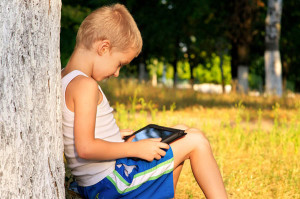 I wish for all the future children that they might remember life before phone menus (push 1 for frustration, 2 for a disinterested foreign voice, 3 for fury…) Life before jobs were outsourced to countries where few at the other end of the line speak English well enough to be understood, and fewer still seem to care about actually helping you do whatever it is you called about because they’re reading from a script, not listening to your needs (to say nothing of the fact that they can disconnect you with impunity.)
I wish for all the future children that they might remember life before phone menus (push 1 for frustration, 2 for a disinterested foreign voice, 3 for fury…) Life before jobs were outsourced to countries where few at the other end of the line speak English well enough to be understood, and fewer still seem to care about actually helping you do whatever it is you called about because they’re reading from a script, not listening to your needs (to say nothing of the fact that they can disconnect you with impunity.)
I’d like them to savor what life was like before kids sat at the dinner table, their thumbs racing over tiny digits on a cell phone… before driving and texting made parents’ worries all the worse… before cell phones became appendages as essential as a new prehensile thumb. When people had time to make a life not just a living. When you could add and subtract in your head, not just on an electronic device. When Moms and Dads taught kids how to make things other than money. When nobody was forced to work all day at a computer screen in a cubicle smaller than a bathroom. When people wrote letters with pens on paper – letters that could be saved and savoured years later, or maybe even used to pass on wisdom to another generation. Will the Library of Congress catalog wise emails in days to come, I wonder, or will that be left to the NSA and Google?
Fighting Back
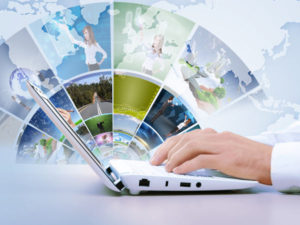 I’m not a Luddite. Computers allow me to run my business from home most days… my website allows me to blog and converse with a worldwide audience… my research for books is infinitely easier online than when it had to be done at the library or ferreting out information on foot. My astrological charts take a fraction of what they did 40 years ago when I learned the science of horoscope casting. So I welcome the improvements and the efficiencies they’ve engendered.
I’m not a Luddite. Computers allow me to run my business from home most days… my website allows me to blog and converse with a worldwide audience… my research for books is infinitely easier online than when it had to be done at the library or ferreting out information on foot. My astrological charts take a fraction of what they did 40 years ago when I learned the science of horoscope casting. So I welcome the improvements and the efficiencies they’ve engendered.
But there’s a lot I don’t welcome. To wit:
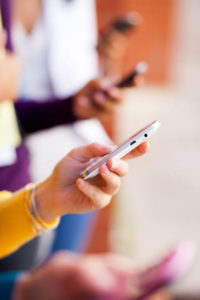 • Living in a sea of microwaves and radiation, good for wifi but not for human brain cells and soft tissue that is now forced to swim in this electronic soup from birth to death.
• Living in a sea of microwaves and radiation, good for wifi but not for human brain cells and soft tissue that is now forced to swim in this electronic soup from birth to death.
As cancer levels and birth defects rise, a number of European countries are more honest than we are about the dangers and are taking steps to protect pregnant women, infants and children from the very real dangers of cell phone usage.
• The disconnection of human beings from each other. Interposing an electronic device between human contacts doesn’t bring people closer, it keeps them separate – protected behind an electronic invisible wall. Sexting? Seriously? How sad is that? But maybe not so strange for a generation that’s learning to make love from watching porn videos.
• Fragmentation and superficiality of information. Being bombarded by input a thousand times a day doesn’t increase knowledge, it increases anxiety, chaos and fragmentation.
This generation knows a smattering of surface data about a million things, but is seldom encouraged to plumb the depths of anything. But then, how could they find time for in-depth knowledge when new data is pouring in on them, in a minute-to-minute deluge?
We Can Never Go Back
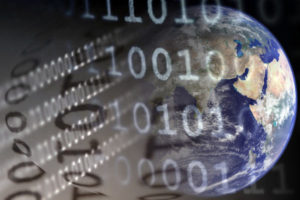 There’s no way back, of course. I’ve just read through nearly 1,000 pages of data compiled by companies who are paid handsomely by giant corporations to assess the next 10 years, and it’s very clear that for the immediate future, technology will dictate pretty much everything and will all but consume our lives.
There’s no way back, of course. I’ve just read through nearly 1,000 pages of data compiled by companies who are paid handsomely by giant corporations to assess the next 10 years, and it’s very clear that for the immediate future, technology will dictate pretty much everything and will all but consume our lives.
We’re being data-mined, surveilled, assessed and catalogued every minute of every day to feed the greedy maw of big business and the insidious greed of governments that wish to spy and ultimately control. If you and I ask Google for an answer to the same question, it will pop up different answers for each of us, because our buying habits have been accessed and our financial capability has been accessed and our previous computer searches have been accessed and it has all been filtered through an algorithm that determines the answer that pops up on your screen. We aren’t being given more choices by wider access, we’re being given fewer, pre-selected ones.
 We’re being watched, calculated and processed for commercial purposes, political expediency and God knows what else – where’s the heart and soul in that we need to ask ourselves, and what can we do to salvage the precious human factor? If we can’t stop the electronic barrage, how can we at least keep it from derailing our humanity?
We’re being watched, calculated and processed for commercial purposes, political expediency and God knows what else – where’s the heart and soul in that we need to ask ourselves, and what can we do to salvage the precious human factor? If we can’t stop the electronic barrage, how can we at least keep it from derailing our humanity?
I think first, we must maintain awareness of the dangers of this brave new world, and try to sort the wheat from the chaff… the genuine progress from the autonomization of our lives. Not just accepting the inevitable as it assesses us, but assessing it right back and deciding just how much of our privacy and humanity we’re willing to share. Because in this faster-than-the-speed-of-light world we now inhabit, it’s terribly, terribly easy to run so fast just staying in the race that important observations can flash past without our meaning to let that happen. We have to help each other stay alert. We have to help each other let the light of truth in through the cracks in a system that profits from keeping us ignorant and controlled.
7 Generations
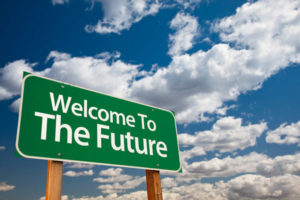 It isn’t only corporations who need to ponder what the Futurists are planning for us – it’s us as individuals who have a stake in humanity’s future because we love our children and theirs to come. And we love what’s best in humankind: our capacity for love and compassion and connectedness… our courageous hearts that let us love beyond reason and fight beyond endurance…our unpredictability that lets us spit in the eye of tyrants when we must. And not one of these is dependant on being tethered to an electronic virtual -umbilicus that predigests data and feeds us what it wants us to know. Our Native American friends tell us we are responsible for the wellbeing of the next 7 generations – each of us equally responsible for the legacy we leave behind. “Did you think you were put here for less, in such dangerous times as these?” Chief Arvol Looking Horse asked of us all in his heartfelt plea for us to be aware and to act to preserve what’s best in our species and our world.
It isn’t only corporations who need to ponder what the Futurists are planning for us – it’s us as individuals who have a stake in humanity’s future because we love our children and theirs to come. And we love what’s best in humankind: our capacity for love and compassion and connectedness… our courageous hearts that let us love beyond reason and fight beyond endurance…our unpredictability that lets us spit in the eye of tyrants when we must. And not one of these is dependant on being tethered to an electronic virtual -umbilicus that predigests data and feeds us what it wants us to know. Our Native American friends tell us we are responsible for the wellbeing of the next 7 generations – each of us equally responsible for the legacy we leave behind. “Did you think you were put here for less, in such dangerous times as these?” Chief Arvol Looking Horse asked of us all in his heartfelt plea for us to be aware and to act to preserve what’s best in our species and our world.
It’s always individual acts that change the world for better, after all. One tired woman won’t go to the back of the bus… one ascetic sage defies the British Empire… one brave man leaks the truth about government corruption… one cell phone message gets out of Cairo. And then another and another. All are cracks where the light comes in.
one brave man leaks the truth about government corruption… one cell phone message gets out of Cairo. And then another and another. All are cracks where the light comes in.
I’d like to let in whatever light is possible. I’m hoping you’ll think that’s a worthwhile endeavor, too, so we can help each other and the next 7 generations to vet carefully the “progress” we’re being offered, so that we pick and choose only that which advances our human potential, without destroying our humanity.
© Cathy Cash Spellman/The Wild Harp & Co. Inc 2014
« Timing is Everything | A Few Thoughts on Mother’s Day »
“Important observations can flash past us without our meaning to let that happen”…that itself is an important observation. I loved this blog. Thank you Cathy for your words of wisdom.
Gerry dear…So glad this blog touched home. I know you worry about the world our beloved children will inherit, as much as I do. If the sweetness and humanity that makes life worthwhile is lost, what will it matter if we have all the technology imaginable? Thanks, as always, for your words of support.
Cathy, you hit the nail right on the head. I drive a school bus part time. It is scary when on a beautiful afternoon, while driving a child home you tell them, “now when you get home and finish your homework, get outside and enjoy this beautiful day and play.” And the child responds, “I don’t like to go outside, I like to play on my iPad.” Scary and sad and unfortunately it’s not just one or two children…..
Maria dear…thanks for the corroboration about my concerns. What precipitated my blog was the research I’d been doing about the future and then seeing a 4 year old tell his mother he didn’t want to go to the park, he wanted to stay home with his iPad. It flooded me with sweet scenes from my own childhood and a sense of sadness that these tech generation children are being prepared for a lifetime in tiny cubicles staring at computer screens.
so important to understand
wonderful, thoughtful, brilliant writer
Thanks so much for the encouragement, my dear Caroline. I hope we all figure this out before it’s too late to stem the tide.